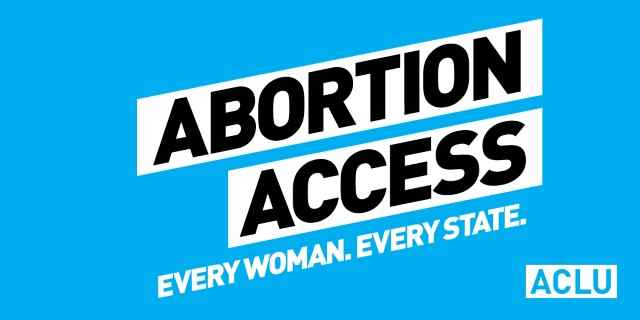By Katherine Klein, Equality for All/Equal Access Advocacy Coordinator
A woman’s right to privacy and healthcare autonomy over her reproductive health were established in the Supreme Court cases Roe v. Wade and Doe v. Bolton. Since these landmark cases, a woman’s right to terminate her pregnancy has never been banned before twenty weeks. The Gestational Age Act – HB 1510 - wants to change that.
The Gestational Age Act would prohibit abortion after 15 weeks of pregnancy, except in the event that the pregnancy would endanger the mother’s life. The 15-week marker has no footing in scientific research. The bill simply states that around this point a fetus begins to “take human form,” which again is not backed by science. The bill also perpetuates dangerous information about abortion. The bill claims that abortion carries significant risk, both physical and psychological, to the patient. This has been disproved in many medical studies.
According to the American College of Obstetricians and Gynecologists (ACOG), safe and legal abortion is a necessary component of woman’s healthcare. According to a recent study by The Journal of Obstetrics & Gynecology, out of 50,000 women who underwent a termination procedure, less than a quarter of one percent (0.25%) suffered any sort of major complication. Abortion is one of the safest medical procedures, and is 14 times safer to the patient than undergoing childbirth (ACOG).
The fight against a woman’s right to choose is a highly political one. High-level donors are backing a systemic nationwide campaign aimed at dismantling abortion rights. According to the Guttmacher Institute, 46 anti-abortion bills were introduced in state legislatures in 2017. These bills are called Targeted Restriction on Abortion Providers (TRAP) bills with a goal of total restriction on abortion procedures.
These attempts to restrict abortion have largely failed so far. Since abortion was legalized in 1973, the Supreme Court has never upheld a challenge to shorten the time period in which a woman can seek an abortion to less than 20 weeks. The decision chosen by many states to continue to pursue abortion restriction has proven extremely costly and burdensome on taxpayers. In 2017, Arizona was ordered to pay legal fees totaling $2.2 million dollars to organizations that sued to overturn clearly unconstitutional abortion prohibitions enacted by the Arizona state legislature (Arizona Capitol Times). Mississippi will incur hundreds of thousands, if not millions, of dollars in similar court fees if the Gestational Age Act is implemented.
In 2012, when the last major TRAP bill was passed in Mississippi, both Governor Bryant and Lieutenant Governor Tate Reeves lauded the effort as a way to effectively end abortion in Mississippi. This encourages them to keep trying.








